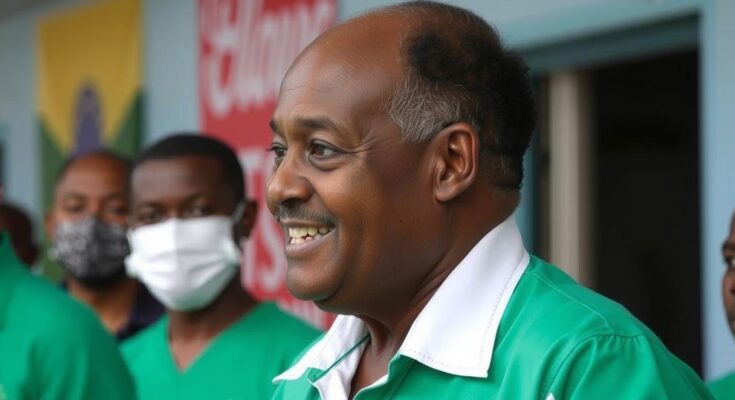The Comoros held elections for lawmakers on Sunday amidst significant opposition snubbing due to concerns about voting transparency. President Azali Assoumani’s son, Nour, is contesting a seat, while logistical issues at polling sites raised further doubts about the electoral process. Opposition candidates claim the ruling party’s stronghold remains unchecked, continuing concerns over democratic practices.
On Sunday, the Comoros, an island nation in the Indian Ocean, conducted its elections for lawmakers amidst significant opposition discontent regarding the transparency of the voting process. President Azali Assoumani’s son, Nour El Fath Azali, is notably contesting for a parliamentary seat in a district near Moroni. Numerous voting booths were reported to have opened late due to logistical issues, including a lack of necessary materials and improvised setups that compromised voter anonymity. With polls due to close at 4:00 pm local time, concerns surrounding electoral integrity have resurfaced as opposition candidates entered the fray to avoid a repeat of the 2020 legislative boycott that allowed the ruling Convention for the Renewal of the Comoros (CRC) to dominate the parliament.
The political climate in the Comoros has been tense, especially following recent elections that have increasingly raised allegations of fraud and authoritarian practices. Azali Assoumani, who originally seized power in a military coup in 1999, was re-elected after a controversial vote in January 2024 where he garnered 57% of the votes, a result that has been subject to vehement accusations of manipulation. The current situation reflects deeper issues within the country, where the opposition struggles to challenge the ruling party’s stronghold effectively.
The recent elections in the Comoros spotlight ongoing tensions between the ruling government and opposition forces who question the electoral process’s integrity. The logistical issues encountered at polling stations only serve to exacerbate these concerns. As the CRC retains a favourable position within Parliament, questions persist regarding the health of democracy in the Comoros and the future of political engagement among its citizens.
Original Source: www.barrons.com




